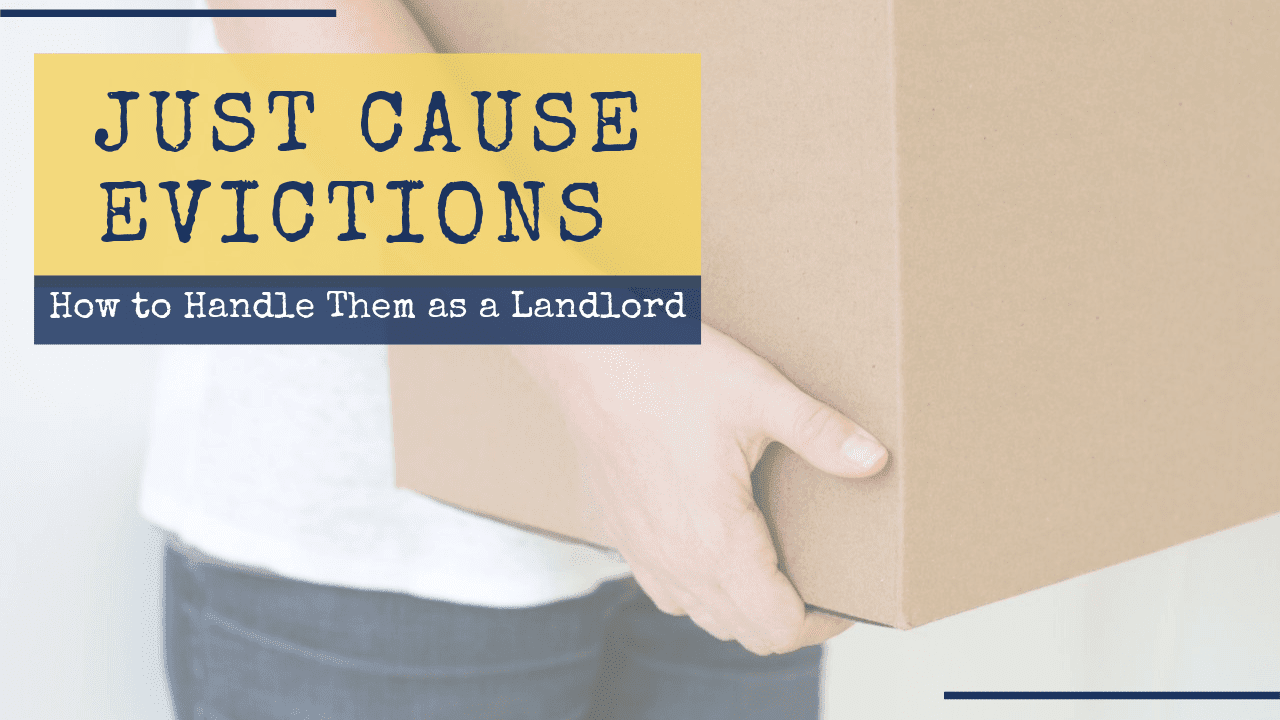
California is already one of the most tenant-friendly states in the U.S., and with talk of rent control and other protections coming down the legal pipeline, landlords need to be even more careful about staying up to date with requirements and expectations.
Just cause evictions are a big topic of conversation lately, and it’s important that you understand what they are and how they pertain to you as a landlord. The days of tossing out a tenant just because you want the property back are long over.
Understanding Just Cause Eviction
Cities and states that have just cause eviction laws require landlords to have a specific reason for evicting a tenant. For example, you can evict a tenant who doesn’t pay rent. You can also evict a tenant who does not follow the terms of the lease or engages in illegal activities while in your property. Most of the cities in California that have rent control ordinances in place have just cause eviction statutes that go along with them. However, you can have a just cause eviction law on the books without also embracing rent control.
When you want to evict a tenant for cause, make sure it’s for a well-documented reason such as:
- Rent is not being paid or is late every month.
- Rent checks are bouncing and funds are not being recovered.
- Lease terms are being violated even after written instructions to comply or move out.
- Property is being used for some illegal or illicit purpose.
- Tenants are creating a nuisance for neighbors.
- Tenants are denying the owner entry even after written notice is provided.
- The owner plans to move into the property.
Following California Eviction Procedures
 If you have a reason to evict your tenant that will stand up in court, it’s important that you follow every legal step to the letter. You must start with written notice, and then you must wait out the notice period before you take additional action. If you’re evicting because rent has not been paid, you’ll need to file an unlawful detainer with the courts. If the tenant does not vacate in time, you’ll get a court date and you’ll have to make your case to the judge. You cannot remove your tenants without first winning the eviction lawsuit.
If you have a reason to evict your tenant that will stand up in court, it’s important that you follow every legal step to the letter. You must start with written notice, and then you must wait out the notice period before you take additional action. If you’re evicting because rent has not been paid, you’ll need to file an unlawful detainer with the courts. If the tenant does not vacate in time, you’ll get a court date and you’ll have to make your case to the judge. You cannot remove your tenants without first winning the eviction lawsuit.
Once you get the outcome you want in a court of law, you’ll be grated a Writ of Possession. With that in hand, you can schedule a time with the sheriff to physically remove your tenants and their belongings if they have not voluntarily vacated the property already.
Working with a professional property management company has never been more important. With the laws becoming stricter and the reasons to evict becoming narrower, you need someone who understands the procedures and can protect your interests and your property.
We have a lot of experience in property management, and we have been following the just cause eviction requirements closely. If you have any questions or you need any help, please don’t hesitate to contact us at New Bridge Management.
